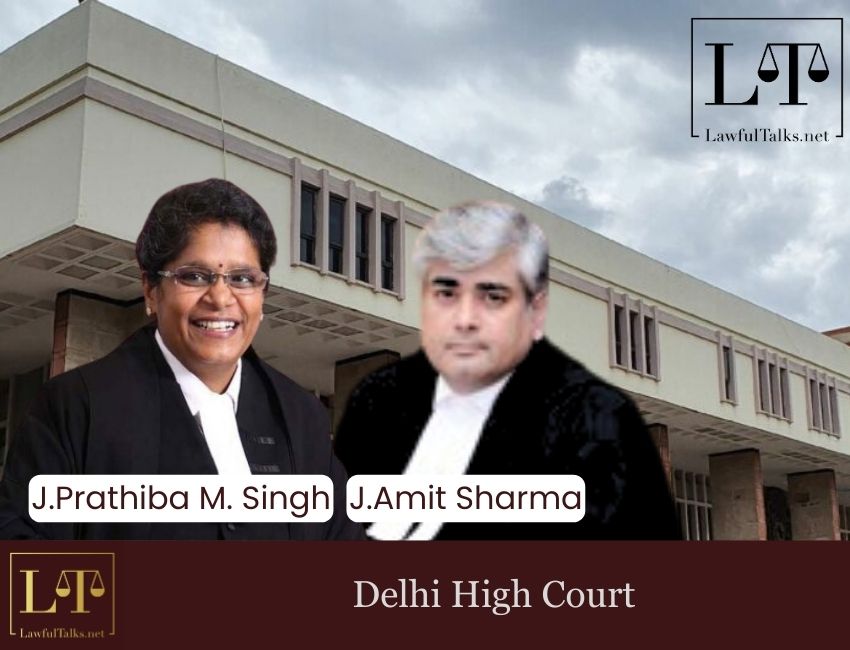Allahabad HC Sets Aside Afzal Ansari's Conviction, Allows Him to Continue as MP

The Delhi High Court ruled that the phrase "samband banaya" alone is not enough to prove an offense under Section 3 of the POCSO Act or Section 376 IPC.
The Delhi High Court Bench of Justice Prathiba M. Singh and Justice Amit Sharma, acquitted a man convicted of rape and sexual assault of a 14-year-old girl under the POCSO Act and IPC. The Bench found that the survivor’s statement did not establish evidence of sexual intercourse or assault.

“The mere fact that the survivor is below 18 years cannot lead to a conclusion that there was penetrative sexual assault. The survivor, in fact, used the phrase ‘physical relations,’ but there is no clarity as to what she meant by using the said phrase. Even the use of the words ‘samband banaya’ is not sufficient to establish an offence under Section 3 of the POCSO Act or under Section 376 IPC. Though consent would not matter if the girl is a minor under the POCSO Act, the phrase ‘physical relations’ cannot be converted automatically into sexual intercourse, let alone sexual assault,” the court stated.
The case revolves around an incident in 2017 when 14-year-old Ms. X (the survivor) was reported kidnapped by her mother and later found with the Appellant, Sahjan Ali, who was arrested. A medical examination revealed no external injuries, and Ms. X, in her initial statement, disclosed a physical relationship with the Appellant. However, during her testimony and cross-examination, she denied any sexual assault. The investigation confirmed her age as 14. The Trial Court convicted the Appellant under Section 376 IPC and Section 4 of the POCSO Act in December 2023, sentencing him to life imprisonment and a fine of Rs. 50,000 in March 2024. The Appellant filed an appeal against the judgment in the Delhi High Court. The Appellant's Advocate, Yashvir Sethi, argued that the Trial Court’s judgment lacked reasoning and failed to consider that the survivor had voluntarily accompanied the Appellant and denied any assault during cross-examination.
On the other hand, A.P.P. Ritesh Kumar Bahri argued that the survivor’s Section 164 statement to the Metropolitan Magistrate clearly established a case against the Appellant.
The Court observed that the Trial Court’s judgment lacked proper reasoning. The survivor testified that the Appellant was her boyfriend, that she had known him for 1.5 years, and that she had gone with him voluntarily. In cross-examination, she confirmed that she was not forced, knew his religion, and ran away because her parents opposed their relationship. She also stated that the Appellant did not physically assault her or commit any wrongful act.
The Court also considered the Appellant’s statement under Section 313 CrPC, where he stated that he and the survivor had gone to Faridabad willingly and with mutual consent, and that he was unaware of her age. The MLC report, dated 18th March, 2017, revealed no external injuries or evidence of assault, and the survivor denied being subjected to any physical or sexual assault.
The Court pointed out that a conviction under Section 376 IPC and Section 4 of the POCSO Act requires clear and direct evidence of acts like penetration or insertion. The survivor’s statement under Section 164 CrPC used the term “samband,” but she later categorically denied that there was any form of sexual assault or intercourse. Additionally, the MLC explicitly stated that there were no external injuries and that the survivor herself denied any history of physical or sexual assault. The prosecution did not call any medical expert to explain the MLC findings, leaving the medical evidence incomplete.
The Trial Court had interpreted the terms “samband” and “physical relation” as sexual assault based on the survivor’s age (14 years) and the age difference between her and the Appellant (22 years). However, the High Court observed that these terms were ambiguous and could not be automatically equated with penetrative sexual assault without supporting evidence. The Court emphasized: “The leap from physical relations or samband to sexual assault and then to penetrative sexual assault is one which has to be established on record by means of evidence, and the same cannot be presumed or deduced as an inference.”
The Court further noted that the survivor’s statements, when taken as a whole, along with the MLC findings, did not provide sufficient evidence to prove penetrative sexual assault beyond a reasonable doubt. The High Court criticized the Trial Court’s reasoning, stating that “the mere fact that the survivor is below 18 years cannot lead to a conclusion that there was penetrative sexual assault.” Therefore, the conviction could not stand without clearer evidence.
Therefore, the appeal was allowed and the trial court's judgment dated 20th March, 2024 was set aside, and the Appellant was acquitted.
Case Details: Sahjan Ali Through Parokar Banu Khatun Vs. State Through Sho Ps Madhu Vihar CRL.A. 397/2024
Advocate for the Petitioner: Mr. Yashvir Sethi, Mr. Amit Kumar Singh, Mr. Saksham Sethi, Mr. Pranav Sharma & Mr. Manan Soni.
Advocate for the Respondent: APP Mr. Ritesh Kumar Bahri with Mr. Lalit Luthra & Ms. Divya Yadav, SI Vineet Pratap Singh, PS Madhu Vihar. Mr. Dinesh Malik (DHCLSC) with Mr. Puneet Jain & Ms. Kiffi Aggarwal.

Anushka Bandekar
Advocate
Latest Posts
Categories
- International News 19 Posts
- Supreme Court 352 Posts
- High Courts 366 Posts




























































































































































































































































































































































































































































































































































































































































































































































